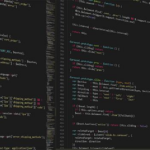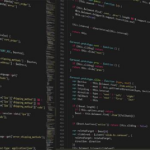The Miami Heat were reportedly caught off guard by news of the FBI’s ongoing sports betting investigation, learning about the probe only after completing the trade that sent guard Terry Rozier to the team. According to sources cited by the New York Post, the Heat had no prior knowledge of the federal inquiry into alleged illegal betting activities impacting the NBA before finalizing the deal, raising questions about the possible implications for the franchise going forward.
Heat Unaware of FBI Sports Betting Investigation Prior to Terry Rozier Deal
The Miami Heat proceeded with their transaction involving Terry Rozier without any knowledge of the ongoing FBI investigation into sports betting activities linked to the NBA. Inside sources reveal that the franchise was blindsided by the federal probe, which has since cast a shadow over multiple league dealings. Despite the intrigue surrounding Rozier’s move, the Heat focused solely on the immediate benefits Rozier could bring to their lineup rather than any external off-court concerns.
Key points surrounding the situation include:
- No internal warnings: The Heat’s front office received no alerts or tips hinting at FBI involvement before finalizing the trade.
- Focus on team strategy: Management prioritized Rozier’s skillset and fit within the team’s system over external distractions.
- Ongoing federal probes: The FBI’s investigation remains active, but no direct Heat personnel have been implicated to date.
| Trade Element | Heat’s Awareness | FBI Investigation Status |
|---|---|---|
| Terry Rozier Acquisition | Unaffected at time of deal | Ongoing, undisclosed to Heat |
| Front Office Communication | No FBI alerts or warnings | Investigation confidential |
| Impact on Team | Focused on improving roster | Potential future scrutiny |
Implications of the FBI Probe on NBA Trade Dynamics and Team Strategies
The unfolding FBI investigation into sports betting activities has injected a new layer of complexity into NBA trade deliberations, forcing teams to recalibrate their risk management strategies. For organizations like the Miami Heat, the probe’s timing-occurring after the Terry Rozier trade-meant decisions were made in a vacuum, devoid of critical intelligence that could have informed due diligence. This scenario underscores a systemic vulnerability where external regulatory actions can abruptly reshape market dynamics and player valuation models without prior warning.
As front offices now grapple with this evolving landscape, several key strategic shifts are emerging across the league:
- Enhanced Compliance Protocols: Teams are instituting more rigorous background checks and vetting processes, particularly around players and agents linked to betting circles.
- Trade Deadline Caution: Executives exhibit increased hesitation to finalize trades late in the season, wary of unforeseen legal entanglements.
- Contingency Planning: Rosters are being structured with greater flexibility to absorb shocks from sudden player suspensions or league sanctions.
| Impact Area | Pre-Probe Approach | Post-Probe Strategy |
|---|---|---|
| Player Evaluation | Focus on athletic performance and fit | Incorporate legal risk and off-court conduct |
| Trade Timing | Aggressive deadline moves | More conservative, risk-averse timing |
| Agent Relations | Standard communication and negotiation | Heightened scrutiny of agent backgrounds |
Recommendations for Enhanced Transparency Amid Increasing Sports Betting Scrutiny
In light of heightened scrutiny over sports betting activities, experts urge leagues and teams to adopt a multi-faceted approach to bolster clarity and public confidence. Proactive disclosure policies should be mandated, ensuring that all stakeholders, including players, staff, and management, are kept fully informed of any ongoing investigations or potential conflicts. This transparency not only safeguards reputations but also preserves the integrity of the game amid growing concerns.
Additionally, incorporating advanced monitoring systems and establishing independent oversight bodies can significantly enhance accountability. Teams must commit to comprehensive internal audits and clear communication protocols to navigate the complex interplay between sports and wagering interests effectively. Consider the following key measures:
- Regular compliance training for all personnel related to sports betting regulations.
- Real-time reporting channels enabling anonymous tips on suspicious activities.
- Collaborative efforts with federal authorities to stay ahead of illicit betting networks.
| Stakeholder | Recommended Action | Expected Outcome | ||||||
|---|---|---|---|---|---|---|---|---|
| Teams | Implement internal reporting structures | Early risk detection and intervention | ||||||
| Leagues | Mandate transparent disclosures | Increased public trust and regulatory compliance | ||||||
|
In light of heightened scrutiny over sports betting activities, experts urge leagues and teams to adopt a multi-faceted approach to bolster clarity and public confidence. Proactive disclosure policies should be mandated, ensuring that all stakeholders, including players, staff, and management, are kept fully informed of any ongoing investigations or potential conflicts. This transparency not only safeguards reputations but also preserves the integrity of the game amid growing concerns. Additionally, incorporating advanced monitoring systems and establishing independent oversight bodies can significantly enhance accountability. Teams must commit to comprehensive internal audits and clear communication protocols to navigate the complex interplay between sports and wagering interests effectively. Consider the following key measures:
|














